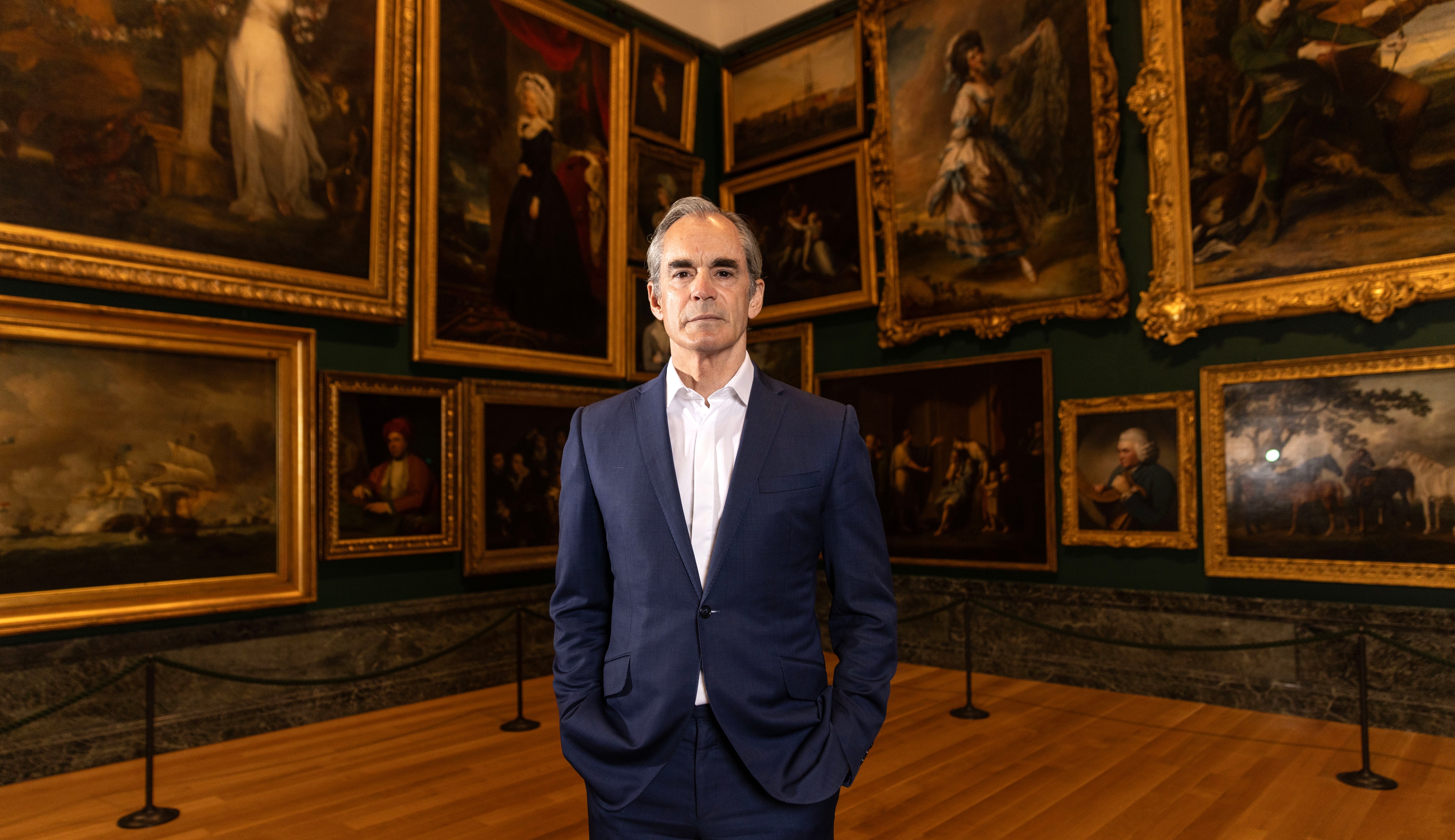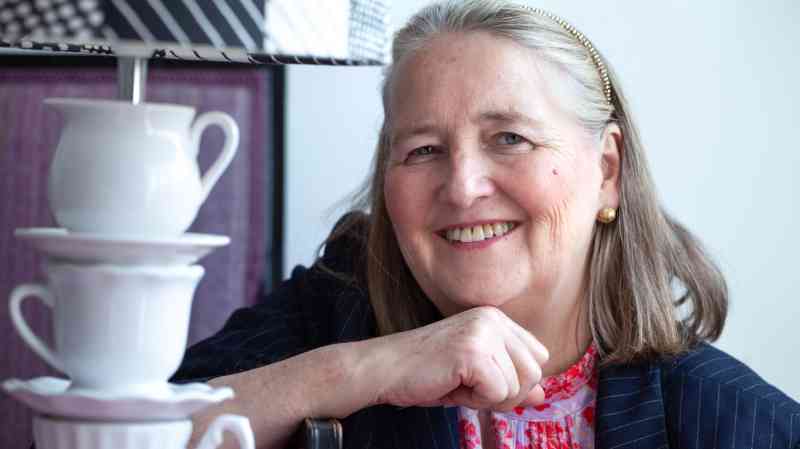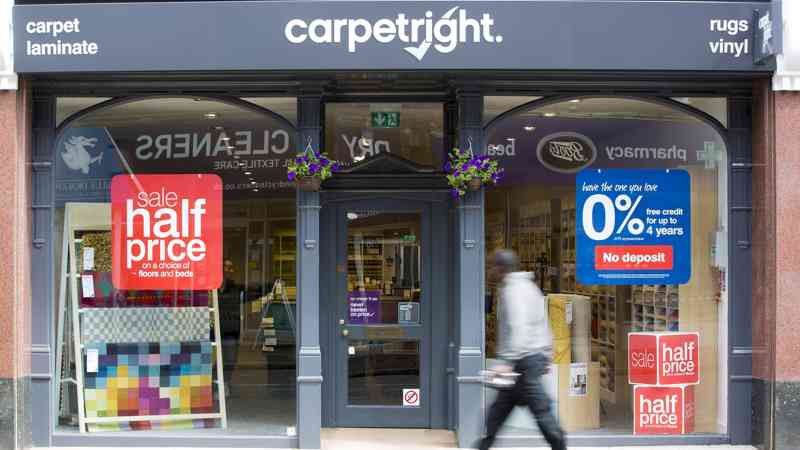Sultans of spin: from M&A factories to advisers, the rise of PR giants
As journalists at the Financial Times in the late 1990s, Robert Peston and Roland Rudd were dubbed “the Pest” and “the Rat”. The Pest went on to become a household name as the BBC’s business editor and ITV’s political editor, known for his quirky delivery as much as his scoops. The Rat, named after the TV character Roland Rat, built an empire of influence in the City — and a multimillion-pound fortune — through the public relations firm Finsbury. He added a board seat at the Royal Opera House and the chairmanship of the Tate art galleries along the way.
That fortune is about to get bigger. Last week, the private equity giant KKR announced that it was buying a majority stake in FGS Global, which includes the old Finsbury business, at an equity valuation of just under $1.6 billion (£1.3 billion). Rudd and his senior colleagues will keep a 26 per cent stake worth more than $400 million.
The deal, which should be completed in November, will release FGS from the arms of the media holding company WPP, which has owned Finsbury since 2001. It will give FGS — whose clients include Daniel Kretinsky, the “Czech Sphinx” trying to take over Royal Mail — aggressive backing to expand from one of the world’s biggest private equity firms. It also stands as a milestone in the evolution of corporate PR from cottage industry to global concern led by a handful of diversified businesses.
As opposed to their cousins on the fluffier “consumer” side of PR, corporate operators have long had hotlines to chairmen and chief executives. But the biggest of them now increasingly compete with cybersecurity specialists, restructuring firms and even top management consultancies such as McKinsey to provide the commodity most boards need at some point: advice.
Shape of the industry
The industry’s worldwide revenues were $15.4 billion last year, according to the trade publication PR Week. Although that was up from $7.8 billion a decade ago, it still represents “a smudge at the foot of the page if you compare it to investment banking”, in the words of one agency boss. Edelman was the only firm in PR Week’s table to turn over more than $1 billion.
The big four in the UK, in terms of their share of FTSE 100 accounts, are Brunswick (29), Teneo (22), FTI Consulting (9) and FGS (8). Powerscourt, set up by the former Sunday Times business editor Rory Godson and acquired last year by shareholder advisory business Sodali & Co, also had eight FTSE 100 clients as of May, according to the Corporate Advisers Rankings Guide. The next on the list, H/Advisors — the group of firms owned by the French communications giant Havas, including Maitland in the UK — had four.
FTI, which is listed in New York and run by the former Boston Consulting Group executive Steven Gunby, generated revenues of almost $3.5 billion last year — although just $329.2 million came from PR. It made the bulk, $1.4 billion, in corporate finance and restructuring. Andrew Nicholas, senior analyst at the investment bank William Blair, said FTI should really be considered “a diversified consulting firm”.

Teneo turned over more than $600 million, split roughly 50:50 between PR and activities such as restructuring (it bought Deloitte’s UK restructuring business in 2021). Brunswick had revenues of $528 million, FGS $465 million.
As their clients become bigger and more global — and financial markets, politics and regulation get more complex — firms are racing to achieve scale. And they are trying to smooth out margin-rich but lumpy revenues from advising on M&A transactions with the more predictable kind of income streams favoured by stock market investors.
“What’s happening to PR happens in every industry, which is that you get consolidation and a bifurcation between global market leaders and niche players,” said the same agency boss. “It happened in investment banking 30 years ago and you can still see it today — you’ve got the Goldman Sachses at the top of the world and then the niche players like Robey Warshaw. Both of them do very well. It’s the guys in the middle that get killed, because they carry most of the cost base of the big boys yet don’t have the nimbleness or flexibility of the boutiques.”
Enter private equity
Private equity is playing a key role in this transformation. Buyout firms have dabbled in the industry before: Advent International, more recently known for deals in the defence sector, scooped up Financial Dynamics in 2003 and sold it to FTI three years later. But KKR’s swoop on FGS is the latest in a wave of deals that illustrate how private equity money has entered the sector in a more comprehensive way.
The New York-based Sard Verbinnen, which later merged with Finsbury, sold shares to Golden Gate Capital in 2016; CVC bought Teneo in 2019; BDT Capital Partners, run by Warren Buffett’s banker, Byron Trott, took a 10 per cent stake in Brunswick in 2021; KKR first acquired a minority position in FGS last year; and Sodali, the new owner of Powerscourt, is backed by TPG.
The infusion of capital and institutional management will rev up companies. In some cases, this is already seen as having had a counterproductive effect. Teneo, which lost co-founders Declan Kelly and Doug Band in scandalous circumstances shortly after CVC arrived, took over Unilever adviser Tulchan for a headline price of more than £65 million last year — only to see Tulchan’s founder, Andrew Grant, leave after personality clashes.
In other cases, it may help firms grow and become more professional. And it will bring “liquidity” — the polite term for windfalls of lucre — for founders and staff. A senior source at Brunswick said the main purpose of its deal with BDT was to give the partnership a new outside perspective. It also triggered a £140 million payout to partners, of which £70 million went to the chairman.
The early days
In the history of PR, 1994 was a significant year. Rudd started Finsbury and John Addey died. Addey, who was 63, was regarded as the godfather of financial PR. A former barrister who lived at the prestigious Albany block of flats in Mayfair and drove to meetings in a Bentley convertible, he advised tycoons including Rupert Murdoch, emeritus chairman of News Corp, parent company of The Sunday Times.
Addey’s protégé was Brian Basham, a former financial journalist. Basham launched the PR firm Broad Street and — along with the likes of Tim Bell, Roddy Dewe and Nico Rogerson — rode the boom in privatisations and takeovers unleashed by Margaret Thatcher’s Big Bang reforms in the 1980s.
George Pitcher, who co-founded the communications agency Luther Pendragon in 1992, summed up the way in which PR people worked in that era. “My capacity for good claret and late nights in the American Bar at the Savoy Grill were the top skills required,” he said.
Basham claims to have pioneered the tilting of PR towards M&A transactions. “I focused on takeover bids, and within a year I was earning £50,000 a week instead of £50,000 a year,” he said. He also claims to have discovered one Alan Parker, a former rock’n’roll band manager and son of Sir Peter Parker, who chaired British Rail. “Alan just fell into his niche,” Basham said. “I said, ‘Look, I can’t pay you for a bit until I get more fee income,’ and he sat there, answering the phone for a month with no payment.”
Parker — now Sir Alan — left to establish Brunswick in 1987. He made his ambitions clear by hiring the City editor of The Times, David Brewerton, and leading the vigorous defence of the chemicals giant ICI against a takeover by the Hanson conglomerate. The revelation that Hanson was paying for racehorses supposedly owned by Lord (Gordon) White, who ran its American operations, helped scupper the bid.
Parker and Rudd are Britain’s undisputed sultans of spin. But Brunswick and Parker are in many ways the inverse image of FGS and Rudd.
Different strategies
FGS has grown by acquisition, merging with American rival Robinson Lerer & Montgomery in 2011 and Washington-based Glover Park Group and Germany’s Hering Schuppener in 2021. Alex Geiser, previously Hering Schuppener’s managing partner, is now FGS’s chief executive, with Rudd, 63, as chairman. Rudd enjoys a high profile, having campaigned for the alternative vote in 2011 and chaired the People’s Vote pressure group for a second EU referendum.
Brunswick has been studiously organic in its growth, even though that meant struggling to break through in New York for years until it hired Steve Lipin, a former Wall Street Journal M&A reporter. It has preferred to pursue individuals rather than companies — poaching the likes of Steve Cooke, the former senior partner of law firm Slaughter and May, and Trelawny Williams, previously head of corporate governance at the funds giant Fidelity. In terms of personal profile, Parker, 68, who comes from a thespian family, lives by the motto: “Don’t get between the client and the footlights.”
Unlike at FGS, where shares have been distributed widely among senior staff, Parker continues to hold onto the equity at Brunswick tightly.
At about 17 times last year’s earnings, the KKR deal values FGS on a racy multiple, albeit a similar one to FTI’s stock market rating. That is despite the fact that FGS’s profitability fell last year even as its revenues rose.
The private equity firm is understood to be backing FGS’s present strategy of consolidating communications firms around the world — exemplified by its purchase last year of a mining-focused PR firm in Canada, Longview — rather than branching out into radically different services. KKR also wants to help FGS improve its back-office systems.
So far, corporate PR has been a rare British export success story. The fizz and internationalism of the City in the 1980s and 1990s, combined with the tough media environment of Fleet Street, produced firms that were more entrepreneurial and wily than many of their US counterparts. “Americans are shit at it,” was the blunt assessment of one founder here. “Basically, PR in America is, ‘Can you get it on CNBC?’ ”
Most informed observers believe there is another big round of dealmaking looming — possibly involving an attempted sale of Teneo by CVC, or a deal by the private-equity backed investor relations company ICR, which bought the healthcare-focused UK PR firm Consilium last year. “There’s a ton of money coming into this industry and the pieces will get moved again,” predicted one.
The question is: which firms will emerge winners from the potent confluence of American capital and British PR nous?






